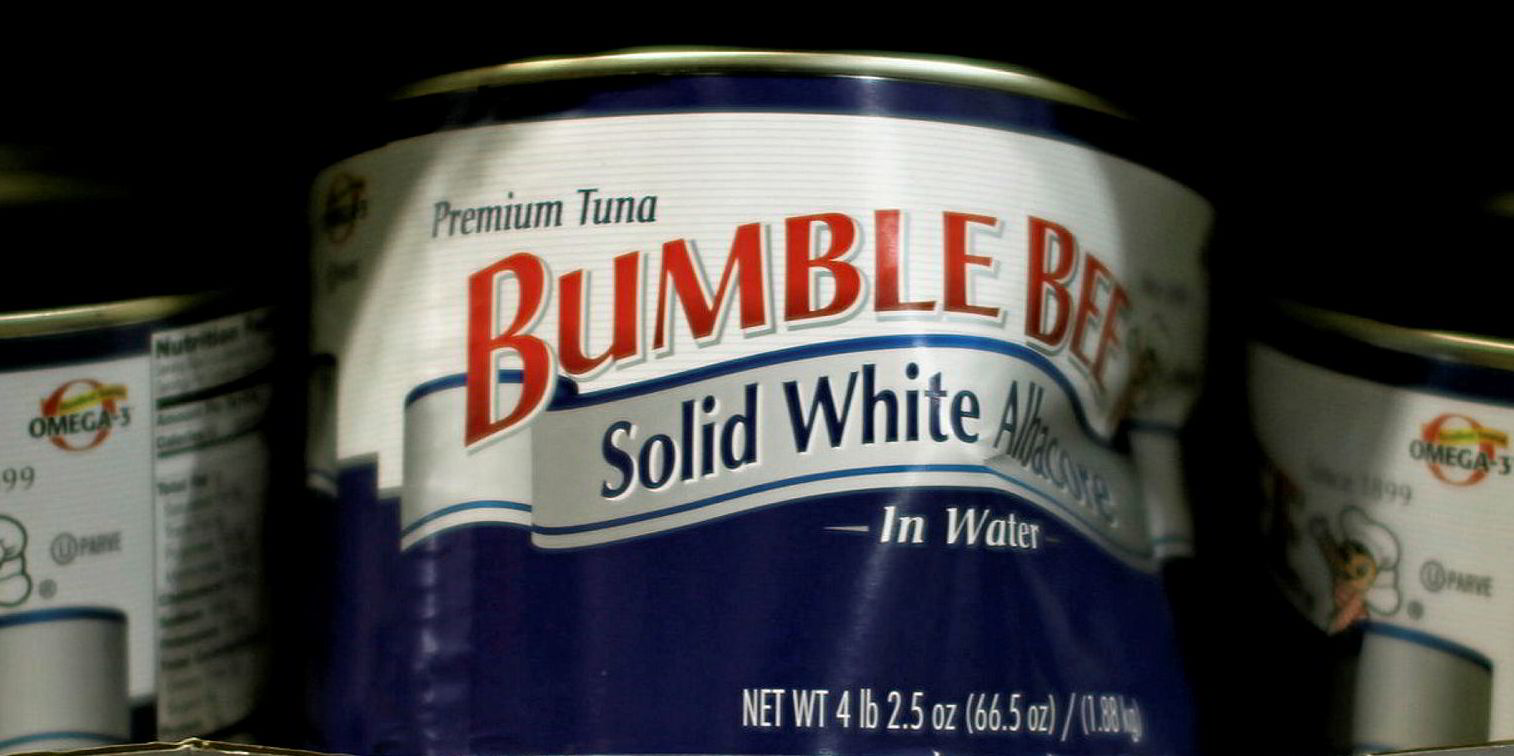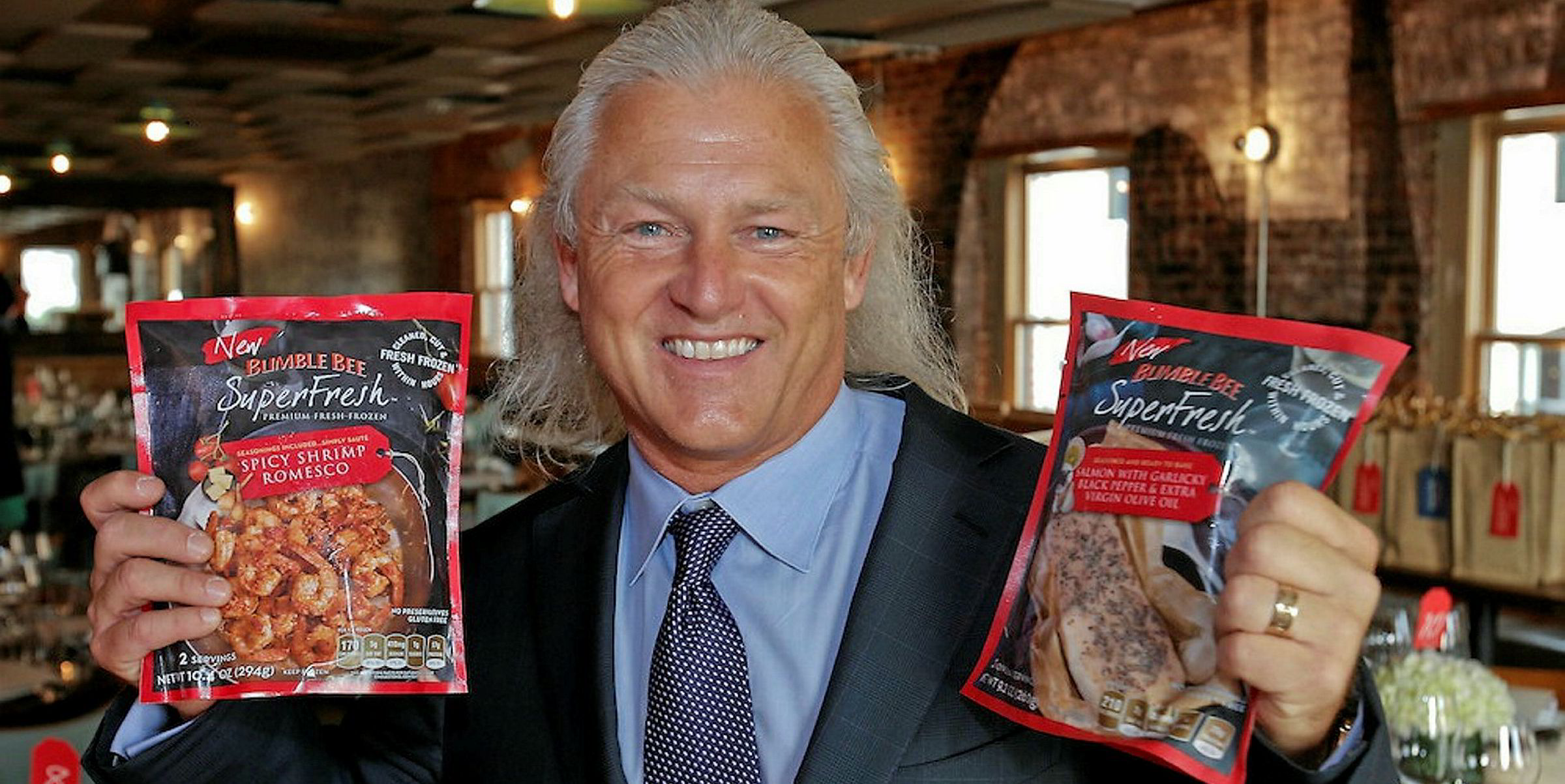Canned seafood giant Bumble Bee's bankruptcy is one of the largest to rock the sector in years.
The casualties from the Nov. 21 Chapter 11 filing will be vast given the scale of its group, its purchases and its clients, and it's unavoidable that plenty of people will be taking haircuts in the process.
In its original filing, Bumble Bee named its largest unsecured creditors, including the amount owed. Taiwan-based FCF, its largest creditor with a $50.5 million (€45.6 million) claim, is also Bumble Bee's best hope to continue operations without major disruption.
The group says it intends to enter an "asset purchase agreement" with Bumble Bee for approximately $925 million (€835.5 million).
FCF Fishery, which calls itself the largest tuna supplier in the Western Pacific, is a“stalking horse” purchaser for the sale process. A stalking-horse bid sets a floor for any other offers that emerge in a court-supervised sale.
Other major creditors include the US Department of Justice (DOJ), now owed $17 million (€15.3 million) as part of the settlement of the price-fixing charges.
--
--
In a subsequent filling, Bumble Bee highlighted a far longer list of creditors.
Among the notable names:
- Ahold
- Aldi
- Amazon
- Costco
- Dongwon/Starkist
- Harvest Meat
- HEB
- Kroger
- Lusamerica Foods
- Maersk
- Marine Stewardship Council
- Morey's
- Mowi
- Ocean Beauty Seafoods
- Performance Food Group
- Peter Pan Seafoods
- Sysco
- Target
- Thai Union/Chicken of the Sea
- Trident Seafoods
- Tri Marine
- True World Foods
- Walmart
--
Click here to see the extended list of Bumble Bee's creditors (PDF)
--
Bumble Bee intends to file a bid procedures and sale motion along with the purchase agreement promptly, according to the company. Its bid will be subject to a court-supervised auction process designed to achieve the highest or otherwise best offer for the company’s business.
Bumble Bee CEO Jan Tharp said she anticipates the transaction will move swiftly and close within 60 to 90 days.
All of the companies assets hold value of up to $930.6 million (€840 million), according to documents filed with the court.
2004 - 2010. Defendants shared a common canner in American Samoa, Impress, which is allegedly connected to collusive can size reduction.
2004. Groups colluded to increase prices of canned tuna at least twice.
2006. Groups colluded to increase prices of canned tuna at least once. “By 2007, defendants became more practiced and ambitious in their collusive designs," allegedly downsizing their can size while raising prices.
2007: The NFI created the Tuna Council, whose only members were the defendants, allegedly.
2008. Alleged collusion on price increases on canned tuna.
2010: Defendants allegedly colluded and raised net prices on canned tuna. Net prices are the prices disseminated to brokers of shelf stable seafood products, and represent the list price, less promotional allowances offered by defendants to reduce the list price.
November 2011 - June 2013: Senior executives and sales personnel of the StarKist, Bumble Bee and Chicken of the Sea allegedly "exchanged emails and had telephone conversations about discounting and promotional practices and terms for the sale of canned tuna to customers." They also allegedly "assured each other that they would not compete regarding the pricing and sale of canned tuna sold to customers."
December 2011 and January 2012: Senior executives and sales personnel of defendants allegedly had telephone conversations "about coordinating and announcing a price increase for a number of products in the second quarter of 2012." Price increases were allegedly "virtually identical" and "other products also increased by identical percentages."
2011 - 2013: StarKist, Chicken of the Sea and Bumble Bee allegedly told customers certain factors in the tuna sector made it necessary to increase tuna prices. They allegedly "cited their own predictions about where the tuna market was heading as the basis for a price increase."
2012 - July 2015: Defendants and their co-conspirators allegedly agreed to avoid FAD-free tuna.
July 2015: Published reports revealed US Department of Justice convened a grand jury to investigate potential antitrust violations by companies in the market for the production, pricing and/or sale of packaged seafood, including canned tuna.




